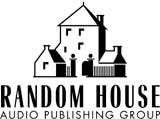 There has been much discussion in the last year concerning the future of DRM (Digital Rights Management). Will it continue to be used widely, or will it be discontinued as an ineffective measure?
There has been much discussion in the last year concerning the future of DRM (Digital Rights Management). Will it continue to be used widely, or will it be discontinued as an ineffective measure?
DRM encompasses a number of technologies used to prevent the illegal distribution of digital audio files. Opponents have long held that DRM gets in the way of legitimate uses by consumers who legally obtained the files. The biggest complaint being the incompatibility of different systems, preventing users from purchasing music at whichever online retailer they choose and likewise playing said music on the media player of their choice.
All that may be poised to change in the near future.
Major book publisher Random House has made the decision to cease using DRM on its audio book downloads.
Beginning March 1st, we will no longer require that our retail partners use DRM when selling audiobooks via digital download. We believe that this move will allow for healthy competition among retailers targeting the iPod consumer, without posing any substantive increase in risk of piracy.
This announcement follows the results of an experiment Random House conducted, in which they sold unprotected, but watermarked, MP3s through online retailer EMusic.com. A third party company was hired to track the distribution of Random House titles on Peer-to-Peer networks in order to determine if the sale of unprotected files would correlate to an increase in illegal file trading.
The results: we have not yet found a single instance of the eMusic watermarked titles being distributed illegally. We did find many copies of audiobook files available for free, but they did not originate from the eMusic test, but rather from copied CDs or from files whose DRM was hacked.
The report also notes similar finding by major labels in the music industry, indicating that the entire digital download market for music and spoken word content will soon be headed in the same direction.
What does this mean for consumers? It means more competition for your business. With more retailers selling digital files capable of being played on any number of media devices, competition should bring prices down.
Does this mean a decrease in earnings for authors, songwriters and bands? Not necessarily.
While the growth of the download market may cause anxiety, please keep in mind that our digital royalty structure insures that author earnings will rise as sales shift from CD to download. As a reminder: our digital royalty is 15% of the digital list price; the CD rate is 10% of net receipts. This means that on an average 6-hour-long program, an author earns $2.25 per download as compared to about $1.50 per CD.
Considering the lowered, to nearly $0, cost of manufacturing and distribution for digital files, it makes sense that even with a decrease in retail price, there should be a higher profit margin. And with the product costing consumer less per title, they may purchase in higher quantities. It looks like the death of DRM could be good news for all.
Here’s a link to the story at BoingBoing which includes a link to the PDF of the announcement.







